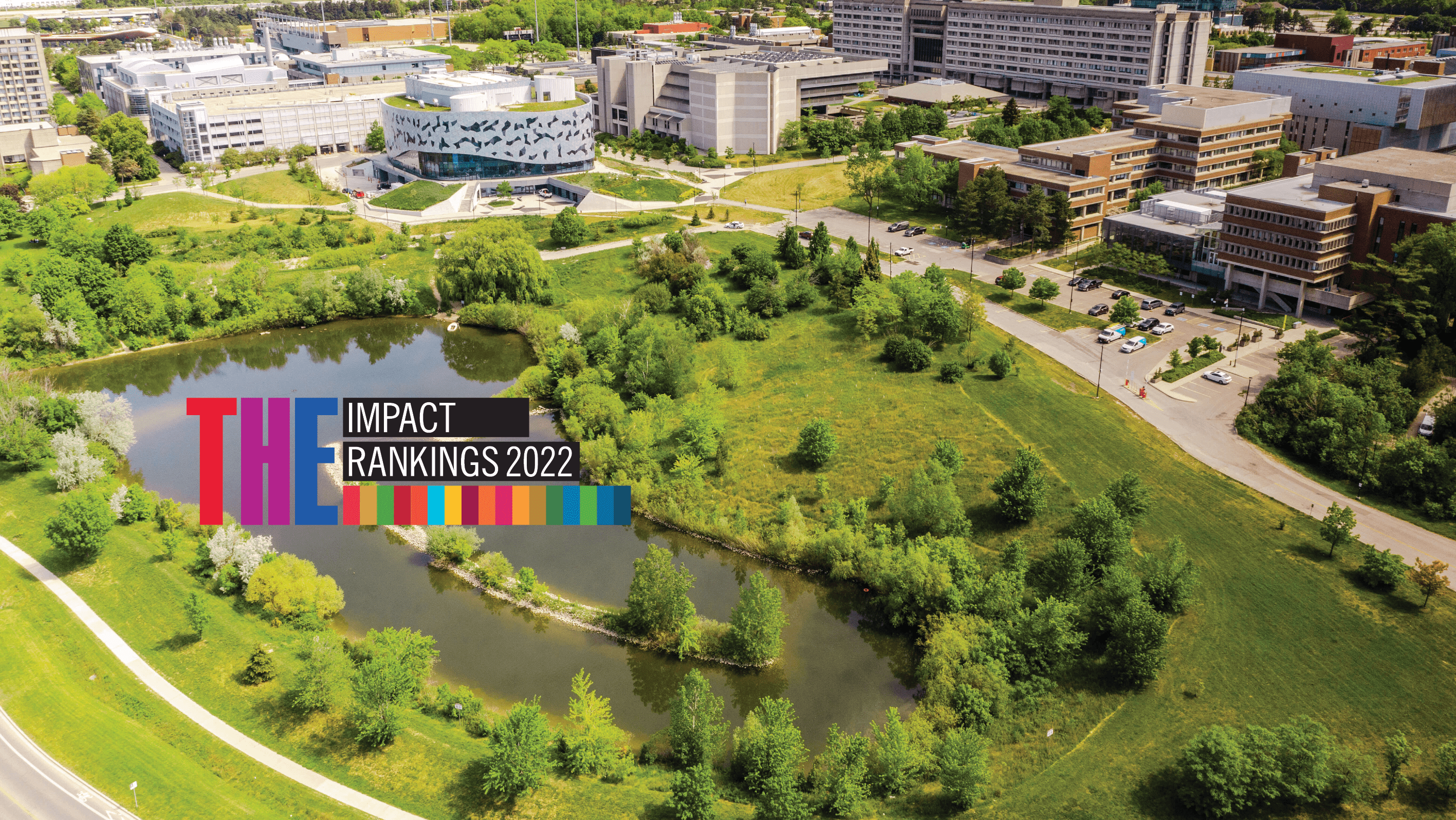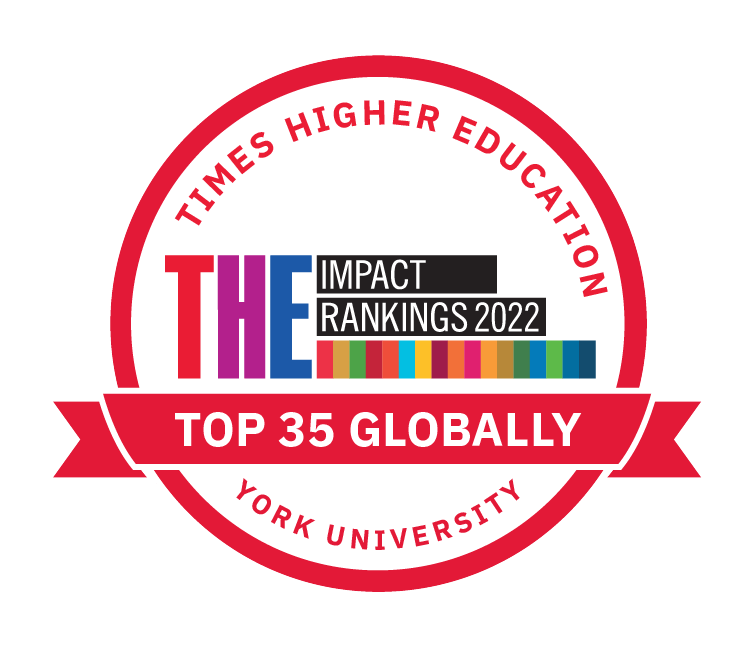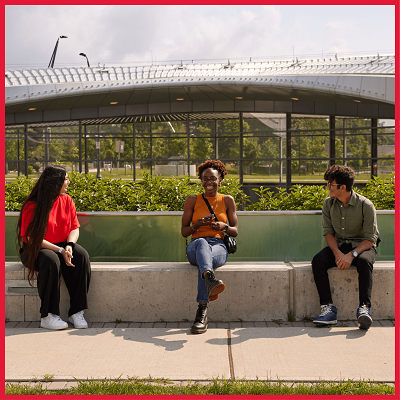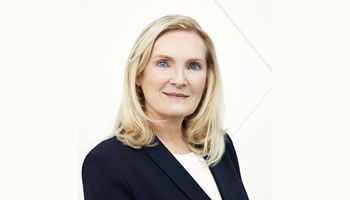
York reaches world’s Top 35 in Times Higher Education Impact Rankings for meeting UN’s sustainable development goals


York University is strengthening its position as a leader in creating a sustainable and inclusive world, ranking in the world’s top 35 in the respected Times Higher Education Impact Rankings.
York U has ranked 33 out of 1,406 post-secondary institutions, moving up 34 spots from its position at 67/1,117 last year.
The impact ranking is influential as the United Nations assesses the performance of universities worldwide in meeting its sustainable development goals.
“Our continued recognition as a world leader in the Times Higher Education Impact Rankings is a testament to York’s steadfast commitment to build a more just and sustainable future,” said Rhonda Lenton, York’s president and vice-chancellor.
“Sustainability is one of the foundations of our University Academic Plan 2020–2025: Building a Better Future that guides teaching, research and operational activities. I want to thank the entire York community for their extraordinary efforts to work together towards the pursuit of peace and prosperity for people and the planet – both locally and globally.”

The Times Higher Education Impact Rankings considers factors such as research, stewardship, outreach and teaching to determine the rank for each institution. The UN has 17 global sustainable development goals for 2030, and York is well ranked among the top 100 universities across them. York’s focus on sustainability resulted in several top rankings:
- In sustainable cities and communities, York ranks in the top 10 globally,
- In peace and strong institutions, York also ranks in the top 10 globally,
- In gender equality, York ranks No. 1 in Canada, and 21 globally.
Lisa Philipps, provost and vice-president academic, credited the hard work and dedication of students, faculty, staff and alumni for contributions that inspire the entire York community to help build a better future.
“The UN’s 17 sustainable development goals represent fundamental values at York,” Philipps said. “They align with the six priorities for action that we have set for ourselves within the University Academic Plan and reaffirm our longstanding values of social justice, equity and sustainability. This achievement represents the dedication of the entire York community.”
Top 35
in the world
THE Impact Rankings
Top 10
in the world
Sustainable Cities and Communities (SDG 11)
Top 10
in the world
Peace, Justice and Strong Institutions (SDG 16)
#1
in Canada
Gender Equity (SDG 5)

President Rhonda Lenton was recently interviewed on episode 16 of 105.9 The Region’s show Good to Hear about York’s record-high Times Higher Education Impact Rankings.
Listen to the interview below.
These higher education rankings were introduced in 2019 to evaluate universities around the world and assess how they were meeting the sustainable development goals set by the UN.

"York’s top-35 ranking recognizes the University’s dedication to creating a diverse community that works together to address complex societal challenges and to conduct research and scholarly activity that advances knowledge and creates positive change, said Amir Asif, vice-president research and innovation.
“York conducts purposeful research that is making a difference in our local and global communities,” said Asif. “Our researchers are dedicated to solving global challenges that will lead to a more equitable, sustainable and inclusive world.”
As it is for York, inclusivity is central to the UN’s sustainable development goals. Both organizations seek to break down barriers worldwide.
The TD Community Engagement Centre strives for academic innovation through community building, education, and experiential learning for the Black Creek Community, one of the most diverse communities in Toronto.
Women and children from kindergarten to Grade 12 can access programs and services through the Carswell Foundation’s ground-breaking partnership between the School of Arts, Media, Performance and Design and the Regent Park School of Music.
The Provost’s Postdoctoral Fellowships for Black and Indigenous Scholars provides resources, mentorship and up to $70,000 a year for learners seeking to get a foothold in their career.
Lenton says York takes a collaborative approach to sustainability, bringing people, institutions, cities and countries together to engage as partners.

In the GTA, York has been engaging with the City of Markham as it prepares to open its new Markham Campus where construction is underway, as well as with business and community leaders working to give diverse communities in the region a voice. The Keele Campus is being reimagined, meanwhile, and will include consultation with the communities it serves.
The University and the City of Vaughan have begun looking at how York can play a greater role within the Vaughan Healthcare Centre Precinct, including a new School of Medicine. The precinct is a collaboration between York, Vaughan, Mackenzie Health and ventureLAB and will create a centre of excellence for health, preventative medicine and community care.
York’s partnerships also create positive change for international communities. The University offers free degree and non-degree education programs and supports for refugees in Sub-Saharan Africa; and bursaries and scholarships to help recent immigrants to Canada gain the skills they need to work and thrive.
Philipps says York is well positioned to continue to meet the UN’s inclusivity and sustainability goals.
“We are now digging in even deeper to right the future by committing to meaningful steps, both small and large, toward a more just and sustainable future.”
